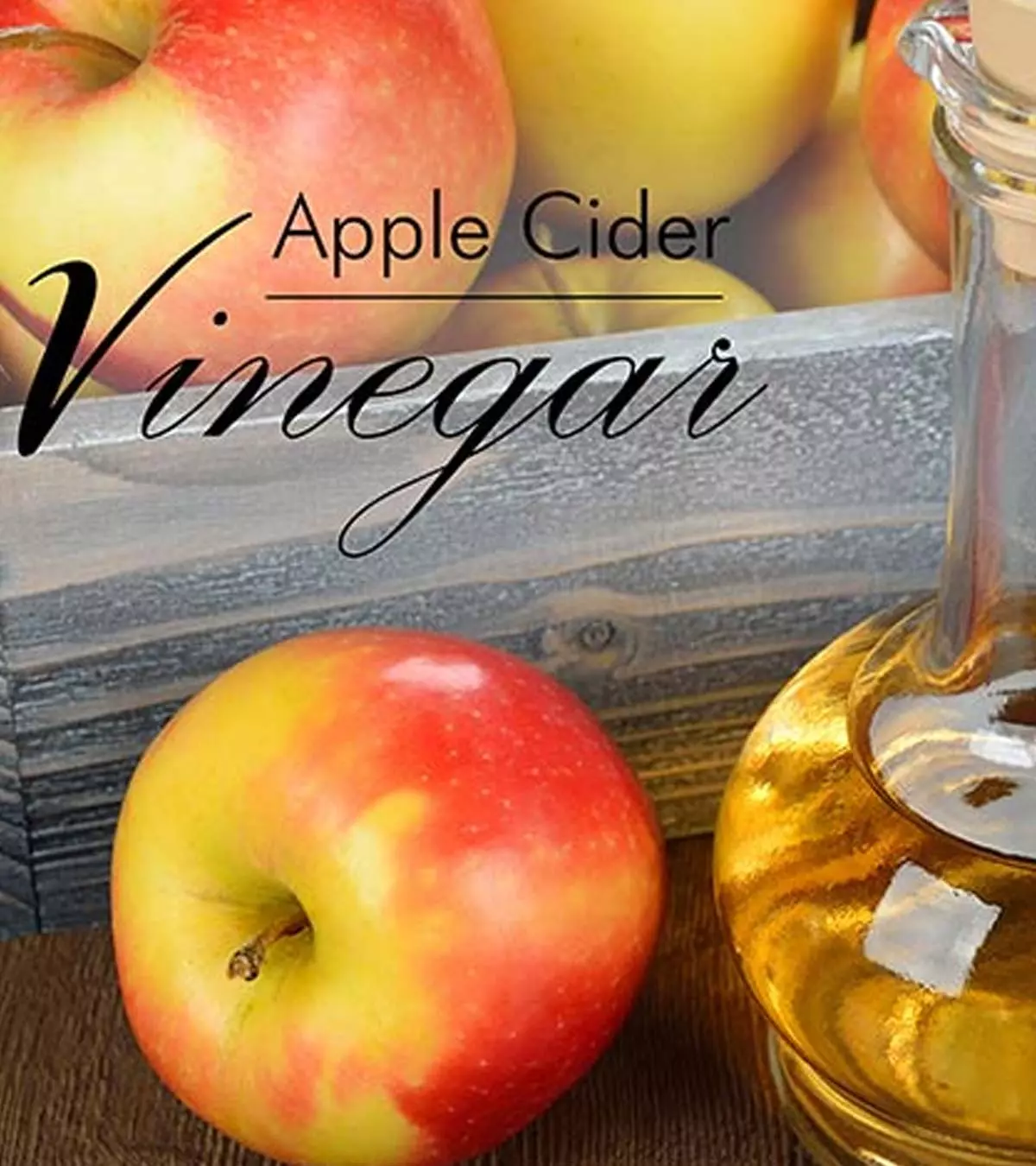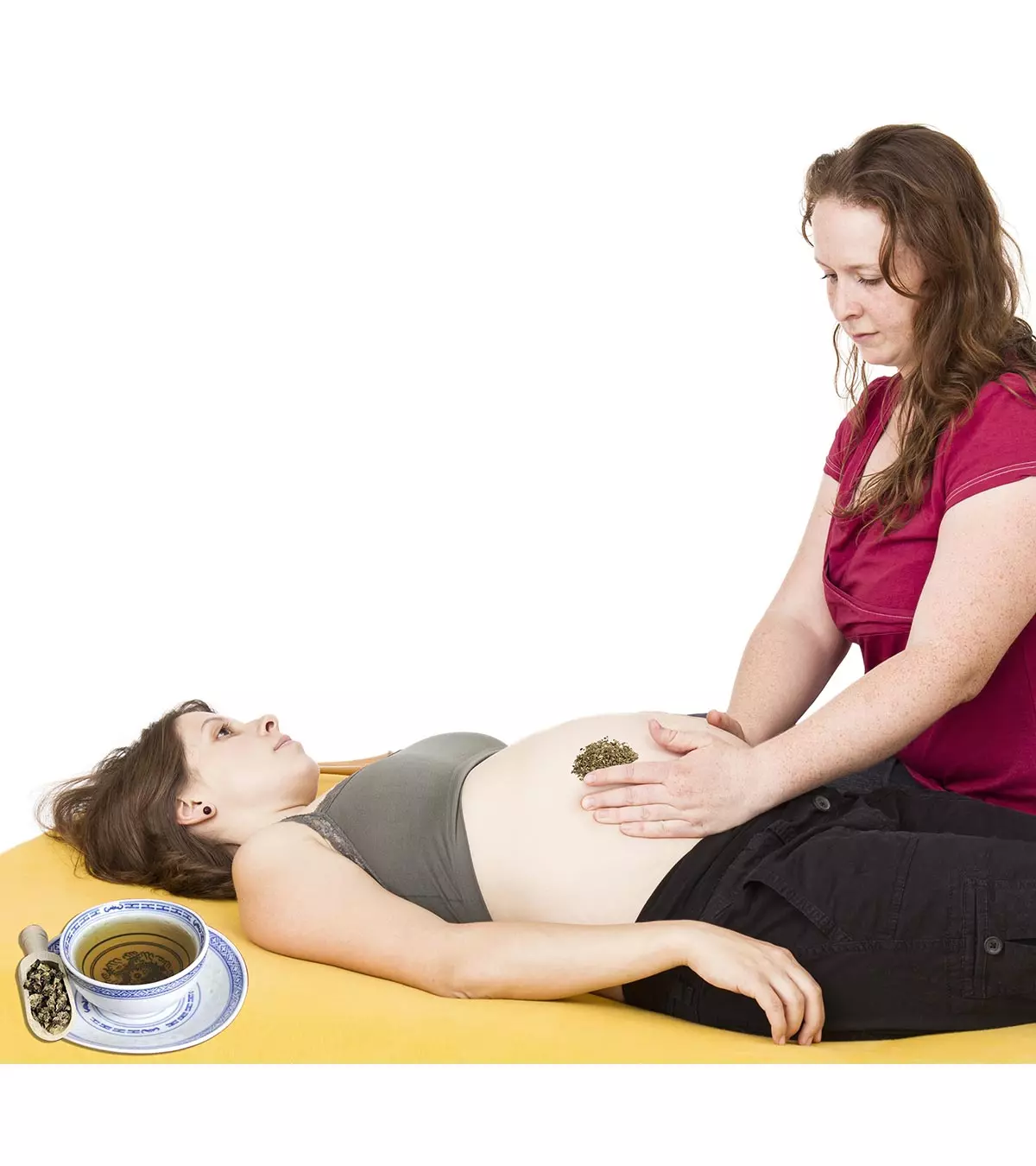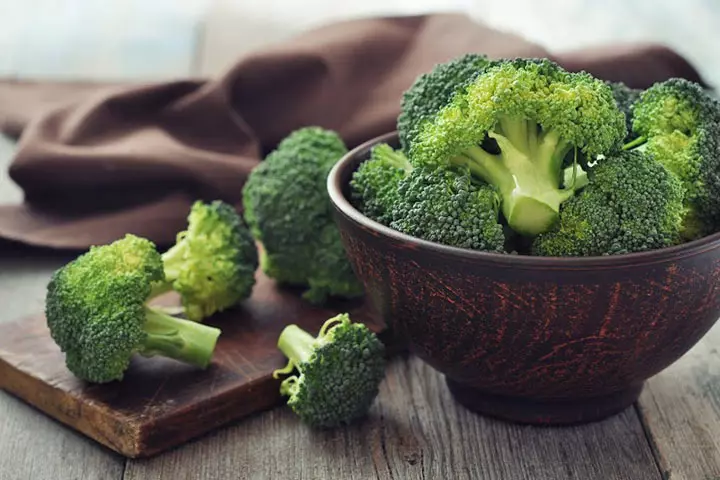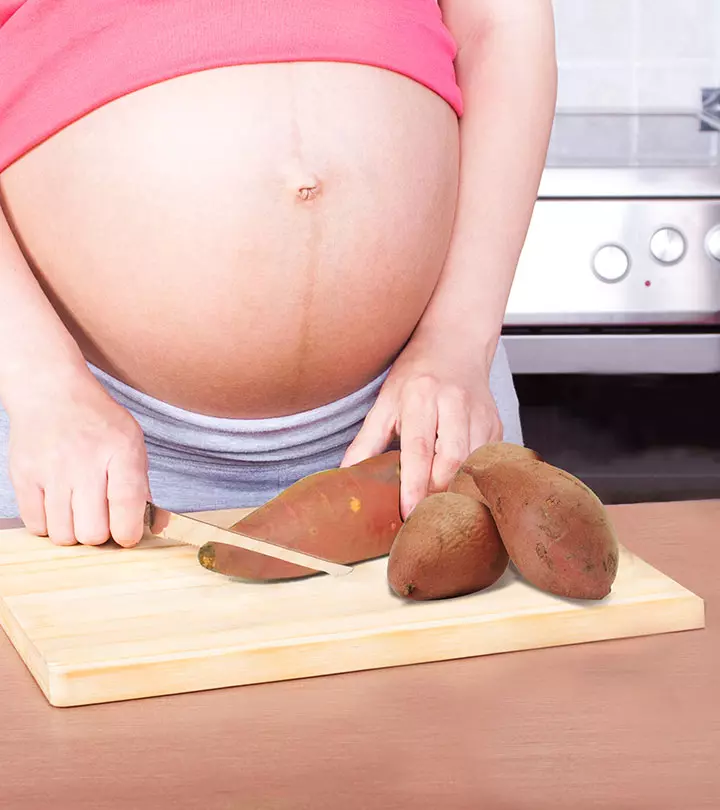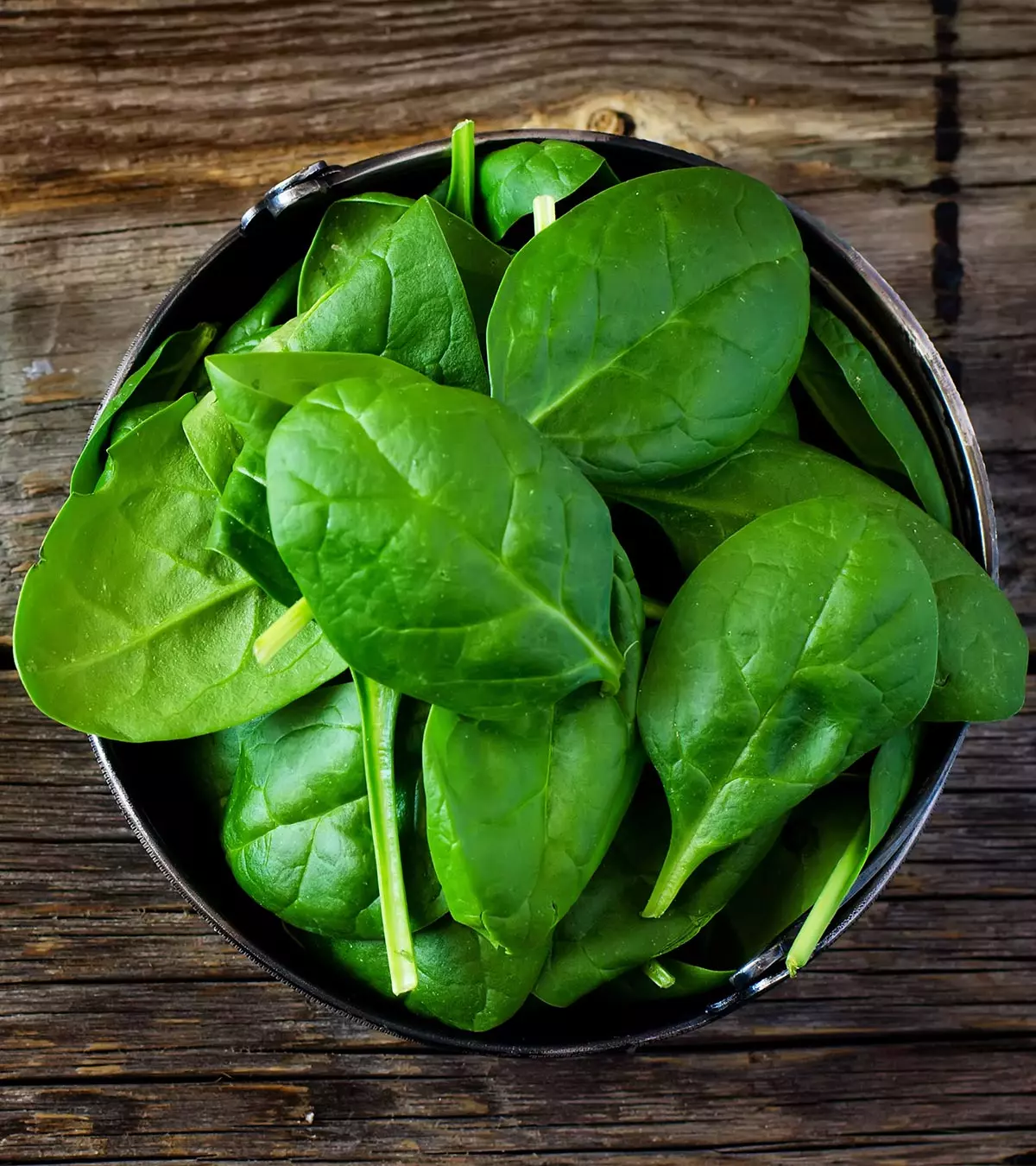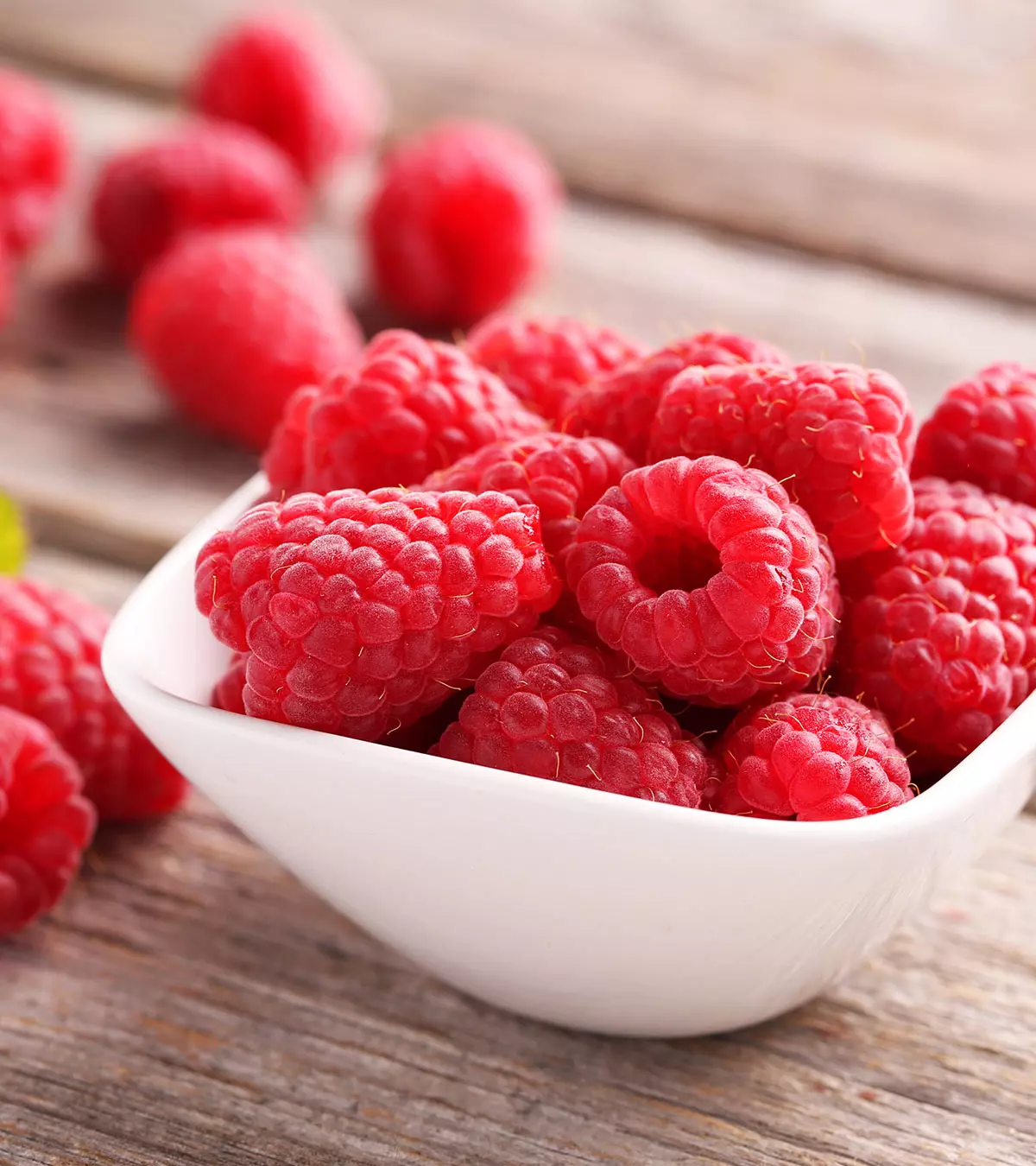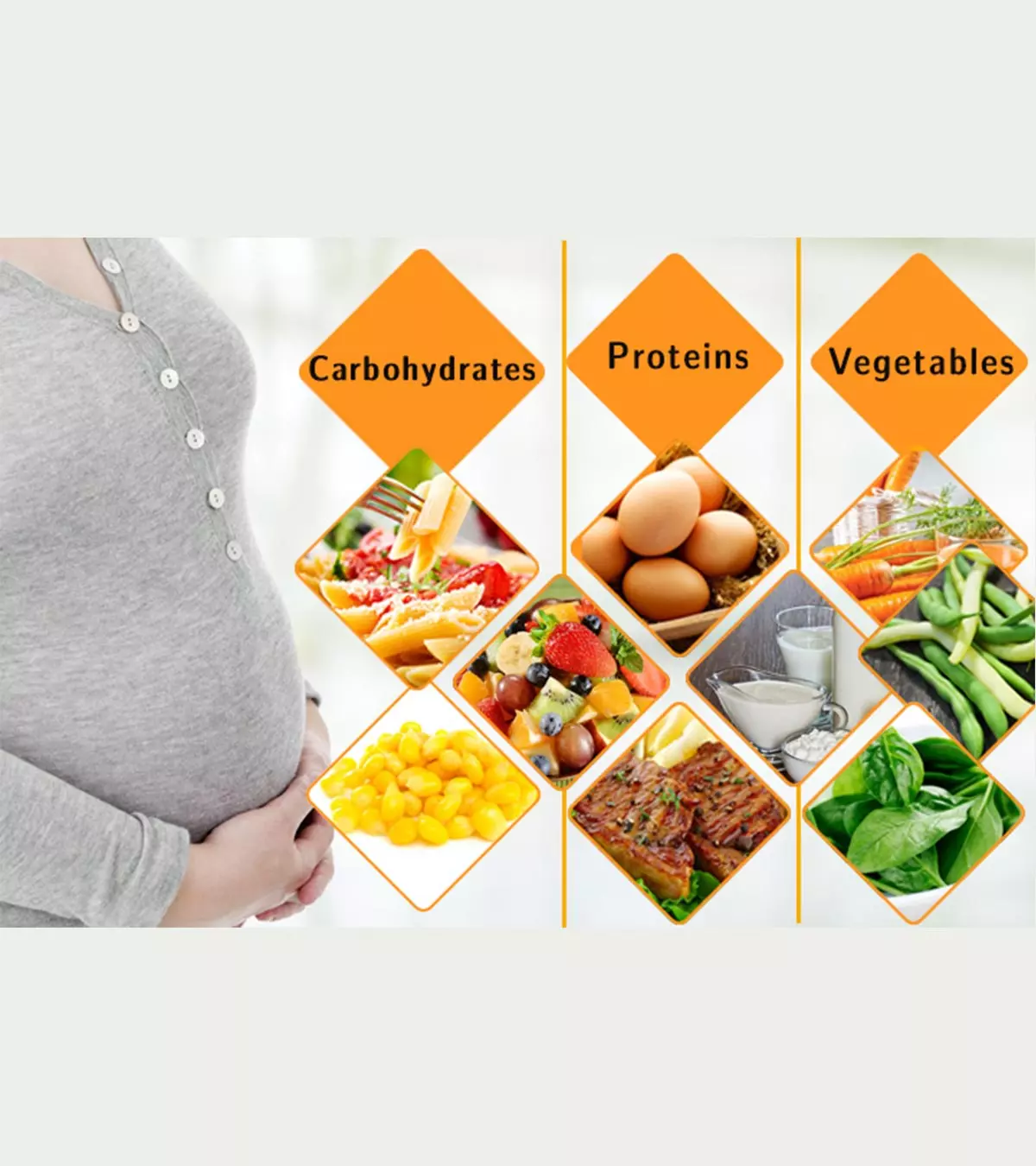
Image: Shutterstock
Congratulations mommy-to-be! You are now about to enter the third trimester. The sixth month is already here, which means you are that much closer to having the little bundle in your arms.
The sixth month means you are in control of the nausea and your hunger pangs may be increasing, as the baby needs more nutrition to grow at this stage. Wanting to eat all the time is a normal part of the sixth month during your pregnancy.
In addition to eating regularly, you also need to eat right, as everything you eat now will play a huge role in your baby’s development. This is why it is vital that you include healthy foods and develop healthy eating habits in your 6th month of pregnancy diet to be in shape for the birth, as well as provide the right amount of prenatal nutrition for your unborn child.
Key Pointers
- During the sixth month of pregnancy, it is essential to consume nutritious foods as the baby is rapidly growing.
- Mothers are advised to follow a wholesome diet enriched with protein, carbohydrates, and other vital nutrients.
- Lean protein, spinach, oats, fruits, vegetables, and dairy products are highly recommended for the pregnant woman’s health and fetal growth.
- To prevent any health risks, pregnant women must avoid undercooked meat, raw seafood, caffeine, alcohol, and spicy foods during this month.
6th Month Of Pregnancy Diet – What To Eat?
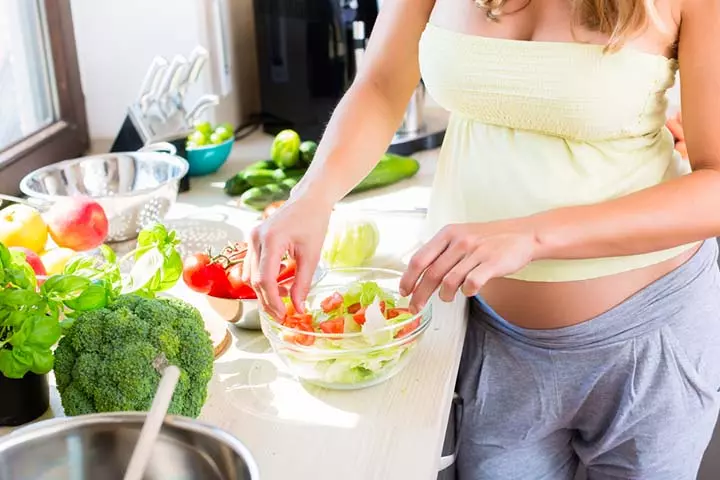
Eating healthy is of utmost importance throughout your pregnancy, especially now that your baby is growing rapidly. Everything you eat will contribute to your baby’s development and growth, so you need to pay extra attention towards your daily diet.
Before you follow the below mentioned diet, remember that every woman’s body is different, and what may be good for others may not work well for you. Remember to check the diet with your doctor before you start any of the items mentioned. Also, stay away from anything that your health advisor may have asked you to avoid.
Here are some foods that you should make a part of your diet during the sixth month of pregnancy.
1. Protein

Pregnant women are recommended to take 75 to 100 grams of protein per day (1). However, you should avoid certain protein sources, such as fatty fish and the skin, and meat fat. It is in fact a good idea to avoid too much meat, and especially red meat.
You should go for:
- Lean meat
- White fish
- Eggs
- Black beans
- Tofu
These foods will benefit you and your child by giving you the protein that your body requires.
2. Carbohydrates
During pregnancy, it’s recommended to consume a portion or two of carbohydrates per day. However, it’s important to consider your weight gain when doing so.
You should go for:
- Potatoes
- Pasta
- Sweet corn
- Seeds and nuts
- Oats
These are some of the foods that are rich in ‘carbs’ and healthy too.
3. Vegetables
The goodness of vegetables is no secret and during your 6th month of pregnancy, they are an even more important part of your diet.
You should go for:
- Beetroot
- Cabbage
- Asparagus
- Spinach
- Carrots
- Pumpkin
- Turnip
- Eggplant/Brinjal
- Green beans
- Tomatoes
These delicious vegetables are iron-rich foods that will do a world of good for your baby and you.
4. Fruits
There is nothing like fresh fruits to refresh and revitalize you. The goodness that they pack in makes them the best food to eat while you are pregnant.
You should go for:
- Bananas
- Grapes
- Kiwis
- Apples
- Pears
- Clementine
- Oranges
These are great sources of nutrients that will aid in fetal development and growth so stock up on these delicious foods!
5. Dairy products
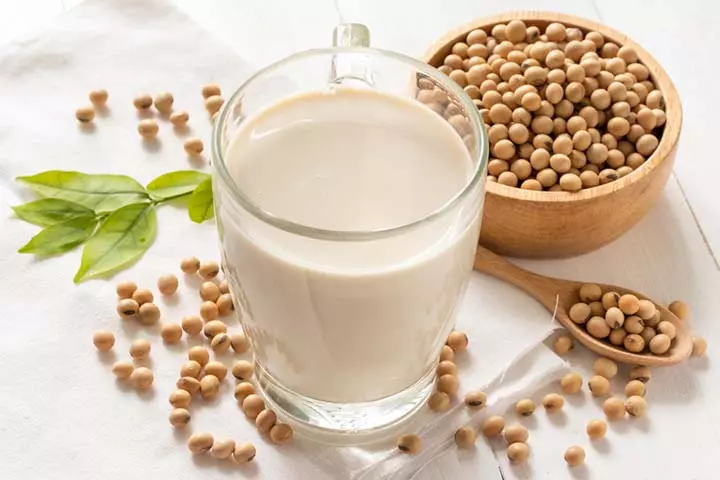
If you avoided dairy products before pregnancy, now is the perfect time to indulge! The calcium intake will aid in making sure that your baby’s bones grow strong. If you are worried about gaining excess weight, you can opt for skimmed or 1% milk, soy milk, and low-fat dairy products (2). You do not need to worry as these are still rich in calcium as well as protein. However, make sure you check with your doctor, as some women develop lactose intolerance during this stage, while some doctors may ask you to stay off skimmed milk completely.
You should go for:
- Yogurt
- Cheese
- Milk
6. Fluids
You should drink plenty of water and fruit juices during this stage of your pregnancy for adequate hydration. Experts recommend six to eight glasses of fluids every day to replenish your body (3) and also give your baby essential minerals that are present in water. Fresh fruit juices will give you the necessary nutrients to have a healthy pregnancy and baby! Additionally, your doctor may recommend you take supplements containing multivitamins and other prenatal vitamins, to ensure proper maternal nutrition.
6th Month of Pregnancy Diet – What To Avoid
Many women often have cravings for rather unhealthy foods while they are pregnant. While it is okay to indulge moderately in some junk food, there are certain foods that should be avoided at all costs while you are pregnant, especially up to your 6th month.
Here are some of the foods that are an absolute no-no during your pregnancy (4):
1. Raw seafood
You may have a sudden hankering for sushi but avoid it at all costs! As raw fish carry high levels of methylmercury, that can cause food-borne diseases like listeriosis which can be dangerous for your unborn baby. However, you may eat thoroughly cleaned and well-cooked salmon and other oily fish as they are great sources of vitamin D and Omega-3 fatty acids.
 Quick fact
Quick fact2. Undercooked meat
Always follow food safety rules and make sure that you cook your meat well as the bacteria mentioned above can be present in meat that is undercooked. If you are cooking meat for a meal, take care to cook it well so that you can digest it easily and also avoid the risk of listeriosis. Try to avoid eating meat outside.
3. Unpasteurized cheeses

Avoid soft cheeses that are not pasteurized and stick to hard cheeses only during your pregnancy, especially during your 6th month. Disease-causing bacteria can also be present in this type of cheese so omit it from your diet.
 Quick tip
Quick tip4. Spicy food
There will be times when you want to eat something hot and spicy; however, it is best to avoid anything that is too spicy. It can cause your stomach to burn and cause indigestion and great discomfort. It is also not one of the best flavors to give your baby, so curb your cravings for anything too spicy.
5. Caffeine
Needless to say, it is best to avoid caffeinated beverages such as coffee and aerated drinks. It is a much healthier option to drink herbal tea as it will sooth and calm you, which is exactly what you need while you are pregnant. Then again, check with your doctor, as some women are put off green or herbal tea during pregnancy.
6. Alcohol and tobacco

It is no secret that you need to completely stay away from alcohol and tobacco while you are pregnant. The damage done to your baby can be irreparable, even fatal, when you smoke or drink during pregnancy. According to US Centers For Disease Control And Prevention (CDC) data, even full-term infants born to mothers who smoke during pregnancy may have a low birth weight (5).
7. Junk food
Limit your intake of processed foods and those with added sugars, as they can lead to excessive weight gain and cause other health complications during pregnancy.
 Point to consider
Point to considerRemember:
Apart from these foods, you should also avoid taking any over the counter medication. If you have a condition that requires you to take medication, consult your doctor and find out if it is safe to be taken while you are pregnant. Only the medicines and supplements prescribed by your doctor should be taken and it is of utmost importance to find out if any other medicines you are taking are safe for your baby. Make sure you make it very clear to your doctor that you are pregnant.
Frequently Asked Questions
1. How much should I eat at six months pregnant?
Expectant mothers need anywhere between 2,200 and 2,900 calories daily. At around six months, when you are nearing the end of the second trimester, you may need an additional 340 calories daily (7).
2. How many meals a day should a pregnant woman have?
The American Pregnancy Association recommends that pregnant women have at least three complete meals and three healthy snacks daily to meet their nutrient requirements during pregnancy (8).
3. How much weight should a woman gain during her 6th month of pregnancy?
In an ideal situation where you are of healthy BMI, a weight gain of 0.5 kg per week in the second and third trimesters is considered normal (9).
4. Are there any special considerations for vegetarians or vegans during their 6th month of pregnancy?
If you are a vegetarian or a vegan, you get enough iron, vitamin B12, vitamin D, calcium, and iodine as they may be mostly found in meat and fish. Pulses, dark green vegetables, and iron-fortified breakfast cereals are great sources of iron. Milk, eggs, and cheese, and vitamin B12 fortified breakfast cereals are good sources of vitamin B12 for vegans. Sources for vitamin D and iodine include cow’s mik, eggs, and dietary supplements. Dairy products are good sources of calcium, whereas, for vegans, dark greeny leaf vegetables, sesame seeds, calcium-set tofu, pulses, dried fruit, and fortified unsweetened oat drinks are popular options (10).
5. What are some good sources of iron and calcium for a woman in her 6th month of pregnancy?
Calcium-rich foods to be included in your diet are milk, eggs, white beans, almonds, salmon, yogurt, cheese, puddings, and cream soups. Furthermore, iron-rich foods that should be included are cabbage, poultry, beef, lettuce, fortified bread, fortified cereal, spinach, turnip, and collard (1).
6. How do nutritional needs differ between women carrying one baby versus those carrying multiples during the 6th month of pregnancy?
For carrying one baby, a mother should consume 300 extra calories than usual to provide optimum nourishment to the fetus (11). On the other hand, for twin or multiple pregnancies, 300 calories per baby in the first trimester, 340 calories per baby in the second trimester, and 452 calories per baby in the third trimester should be consumed (12).
7. What important nutrients should be included in a 6th-month pregnancy diet?
Eating healthy and nutritious food is essential during pregnancy, especially when you’re 6 months pregnant, as the baby is rapidly growing. Folic acid, calcium, iron, DHA, iodine, and vitamin D are the most crucial nutrients for optimum maternal and fetal health (13).
8. What are some easy snack ideas for pregnant women?
Some great options include Greek yogurt with fruit and honey for protein and calcium, whole-grain crackers with hummus for fiber and healthy fats, and mixed nuts and dried fruits for a quick energy boost. Fresh veggies with guacamole or cheese cubes with whole-grain bread are satisfying choices too. You may also consider smoothies with spinach, banana, and almond milk, as they are hydrating and nutrient-rich.
Following a healthy pregnancy diet throughout your pregnancy is a must and the sixth month of pregnancy is no exception. Include nutrient-rich and wholesome foods in your 6th-month pregnancy diet, such as eggs, cereals, vegetables, dairy products, fruits, and healthy fluids. You may avoid certain food items such as raw seafood, soft cheese, spicy foods, caffeine, and alcohol. Also, avoid consuming any unprescribed over-the-counter drugs and medications. Altogether, follow a nutritious diet to facilitate a healthy pregnancy and provide the much-needed nourishment for the proper growth of your baby.
Infographic: 6th Month Of Pregnancy Diet
Following a healthy, balanced diet is crucial to supporting your health and providing ample nutrition for your growing baby. A good meal plan should include enough protein, fiber, and other essential nutrients. The below infographic contains dietary suggestions for you to have in your 6th month to support your baby’s development and maintain your health. Illustration: Momjunction Design Team
Illustration: 6th Month Of Pregnancy Diet - Which Foods To Eat & Avoid?
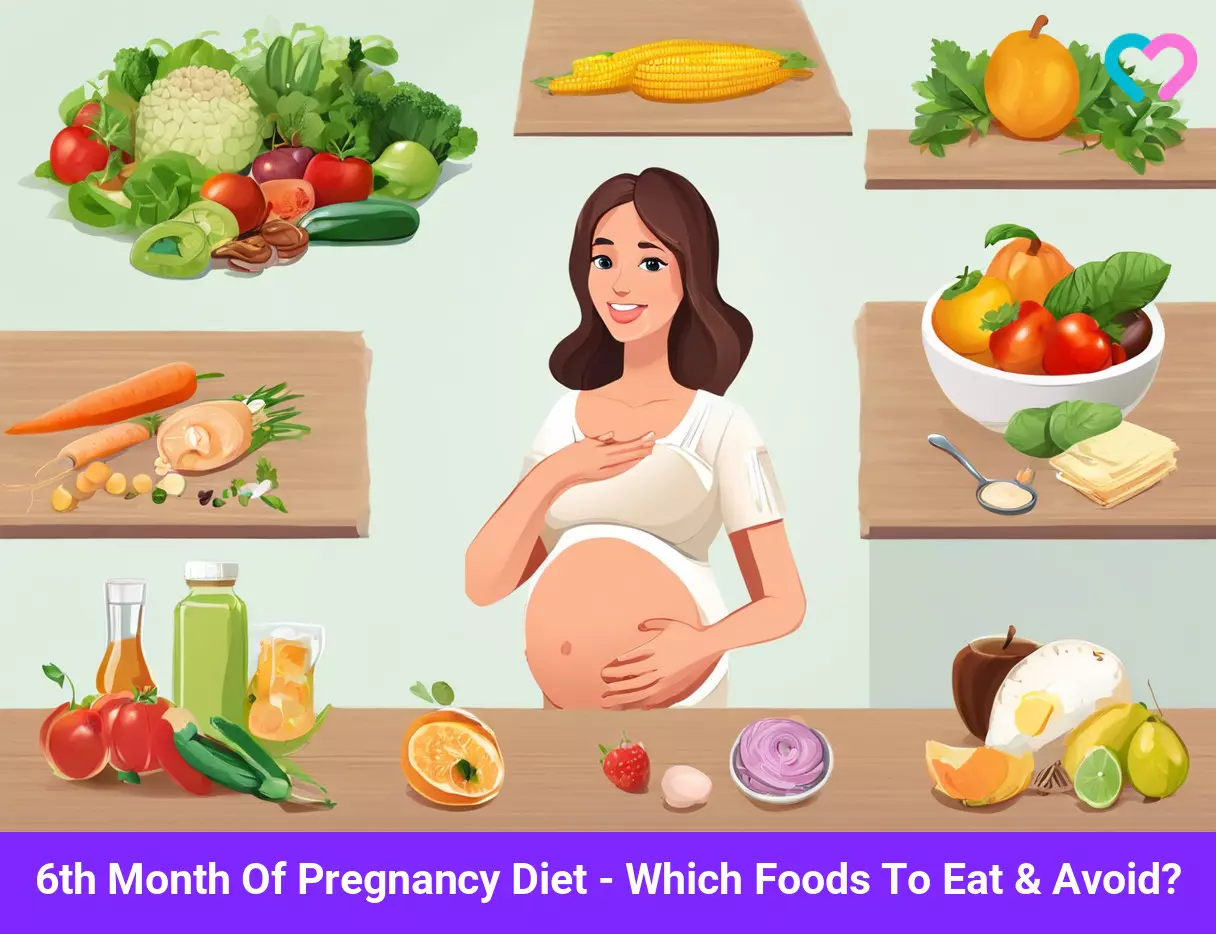
Image: Stable Diffusion/MomJunction Design Team
The sixth month of pregnancy requires a lot of nutrition to support the baby. Learn which foods to take and avoid for a healthy pregnancy with this video.
References
- Pregnancy nutrition.
https://americanpregnancy.org/healthy-pregnancy/pregnancy-health-wellness/pregnancy-nutrition/ - Nutrition during pregnancy.
https://www.hopkinsmedicine.org/health/wellness-and-prevention/nutrition-during-pregnancy - How much water should I drink in pregnancy?
https://www.tommys.org/pregnancy-information/im-pregnant/nutrition-in-pregnancy/how-much-water-should-i-drink-pregnancy - Foods to avoid when pregnant.
https://americanpregnancy.org/healthy-pregnancy/pregnancy-health-wellness/foods-to-avoid-during-pregnancy/ - Health Effects of Cigarettes: Reproductive Health.
https://www.cdc.gov/tobacco/about/cigarettes-and-reproductive-health.html - People at Risk: Pregnant Women.
https://www.foodsafety.gov/people-at-risk/pregnant-women - Healthy Weight during Pregnancy
https://www.eatright.org/health/pregnancy/prenatal-nutrition/healthy-weight-during-pregnancy - Diet During Pregnancy
https://americanpregnancy.org/healthy-pregnancy/pregnancy-health-wellness/diet-during-pregnancy/ - Managing your weight gain during pregnancy
https://medlineplus.gov/ency/patientinstructions/000603.htm - Vegetarian or vegan and pregnant
https://www.nhs.uk/pregnancy/keeping-well/vegetarian-or-vegan-and-pregnant/ - Nutrition During Pregnancy
https://www.hopkinsmedicine.org/health/wellness-and-prevention/nutrition-during-pregnancy - Meeting Your Nutritional Goals During a Twin Pregnancy
https://www.brighamandwomens.org/campaigns/mfm-nicu/nutritional-goals-during-a-twin-pregnancy - Vitamins and other nutrients during pregnancy
https://www.marchofdimes.org/find-support/topics/pregnancy/vitamins-and-other-nutrients-during-pregnancy
Community Experiences
Join the conversation and become a part of our nurturing community! Share your stories, experiences, and insights to connect with fellow parents.
Read full bio of Dr. Kire Stojkovski
Read full bio of Jessica Albert
Read full bio of Swati Patwal
Read full bio of Dr. Joyani Das





